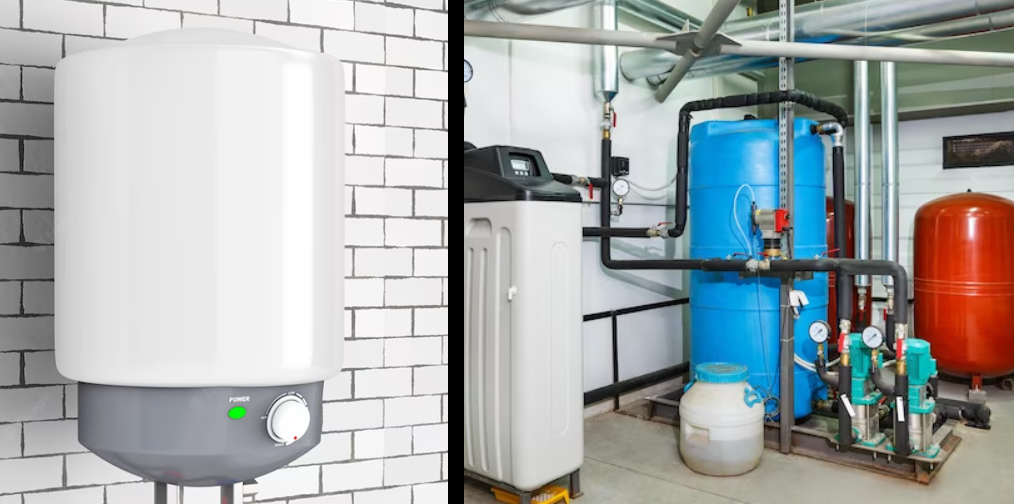When it comes to providing hot water for our daily needs, we often come across two common terms: “water heater” and “water tank heater.” While these terms are often used interchangeably, they refer to different types of systems that serve the same purpose – heating water. In this blog post, we will delve into the differences between a water heater and a water tank heater to help you make an informed decision when choosing the right option for your home.
Water Heater
A water heater is a broad term that encompasses various systems designed to heat water for domestic use. It can refer to both tankless water heaters and water heaters with tanks. The primary function of a water heater is to provide a continuous supply of hot water on-demand. Here are the main types of water heaters:
A. Tankless Water Heaters: Also known as on-demand water heaters, tankless water heaters do not store hot water in a tank. Instead, they heat water instantly as it flows through the unit. When you turn on the hot water tap, cold water passes through a heating element or a gas burner, rapidly raising its temperature. Tankless water heaters are known for their energy efficiency and space-saving design. They are ideal for households with limited space and those seeking lower energy consumption.
B. Water Heaters with Tanks: Traditional water heaters with tanks store and heat a specific amount of water, usually ranging from 30 to 80 gallons. The heated water is ready for use whenever needed. These water heaters work by maintaining a constant temperature within the tank to ensure a continuous supply of hot water. While they may have slightly higher standby energy losses compared to tankless heaters, they are still widely used for their reliability and ease of installation.
Water Tank Heater
A water tank heater, on the other hand, specifically refers to a type of water heater with a storage tank. The tank can be made of steel, glass-lined steel, or even plastic, and it houses the heated water until it’s required. When the hot water is used, cold water enters the tank to be heated, and the cycle continues. The primary advantage of a water tank heater is its ability to provide hot water even during periods of high demand when multiple fixtures are in use simultaneously. However, it is essential to size the tank appropriately to ensure you have enough hot water for your household’s needs.
Key Differences
Heating Method: Both water heaters and water tank heaters heat water, but the former does so instantly (tankless) or by maintaining a reservoir of hot water (with a tank). The latter exclusively refers to water heaters with tanks.
Energy Efficiency: Tankless water heaters are generally more energy-efficient since they only heat water on-demand, eliminating standby energy losses. Water tank heaters, while efficient, may have slightly higher standby energy consumption due to the continuous maintenance of water temperature in the tank.
Space Considerations: Tankless water heaters are compact and wall-mountable, making them ideal for smaller spaces. Water tank heaters require more space for the tank, which can be a significant consideration in tight quarters.
Hot Water Supply: Both types of heaters provide a constant supply of hot water. However, the size of the tank in water tank heaters will determine how much hot water is available before it needs time to reheat.
Conclusion
In conclusion, the main difference between a water heater and a water tank heater lies in the type of heating system they employ. While “water heater” is a general term encompassing all systems that heat water, “water tank heater” specifically refers to water heaters with storage tanks. Consider your household’s hot water needs, available space, and energy efficiency preferences when choosing between these two options. Whichever type you opt for, a well-maintained and properly installed water heating system will ensure a steady supply of hot water for your daily needs.

